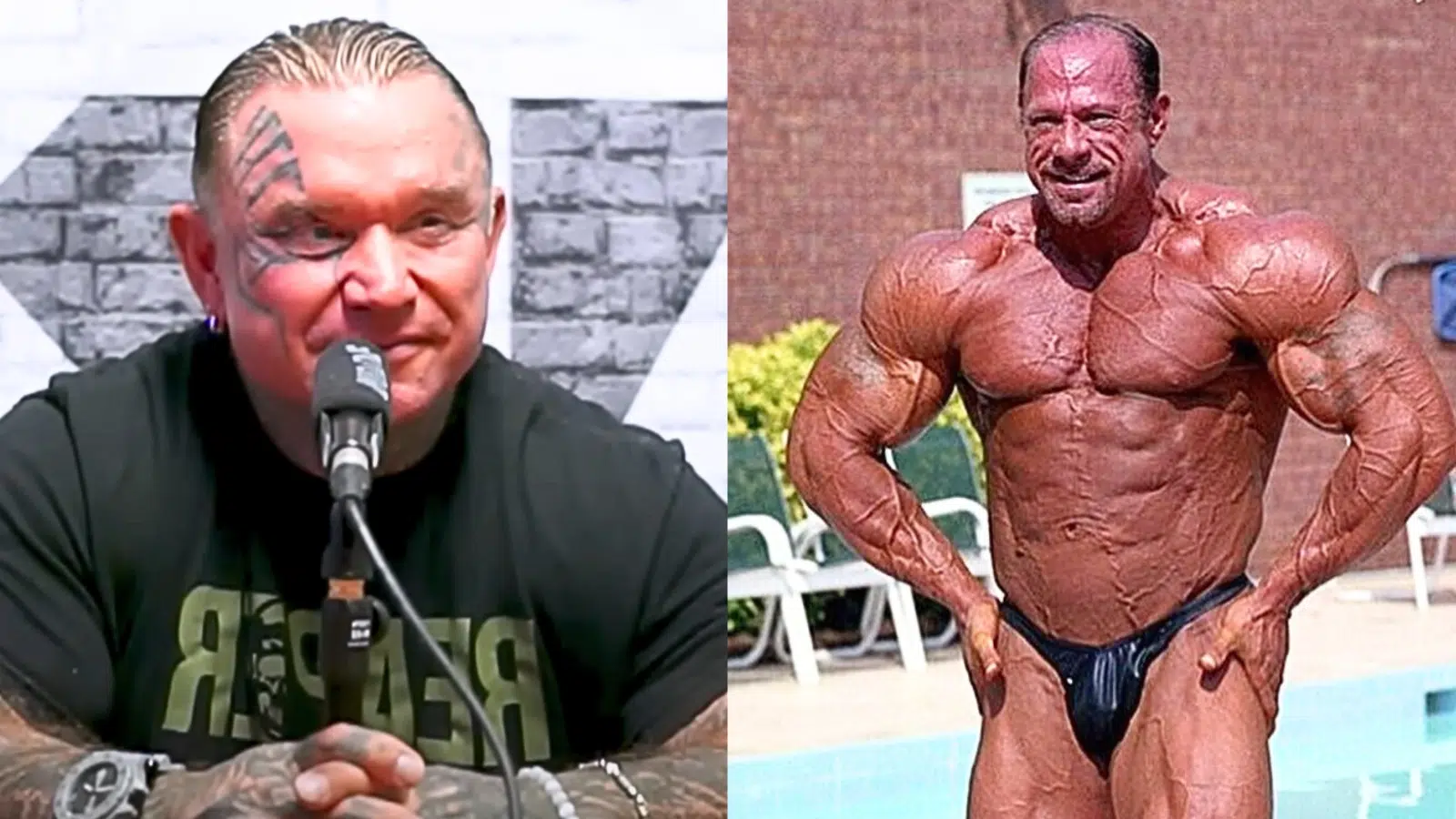Lee Priest is wary about competitors pushing the limits as they get older. In a recent YouTube video uploaded on March 26, 2025, he discussed Masters Olympia competitors jeopardizing their health by competing in their 50s and 60s.
The Masters Olympia is the most prestigious contest that older athletes can sign up for. The age range typically hovers around 45 to 55 years old, allowing competitors who once thrived in the sport an avenue to compete and showcase their physiques forged through hard work and dedicated nutrition.
However, Priest contends that the Masters Olympia is inherently risky because it encourages bodybuilders to use performance-enhancing drugs at older ages. He gives his thoughts on the issue and whether it makes sense for competitors to compete at such an age.
Lee Priest Says Masters Olympia Competitors Have ‘Dropped Dead,’ Discusses Training and PED Use After 50
In a recent YouTube video, Priest discussed when it’s appropriate for someone over 50 to make a bodybuilding comeback. He said starting in the sport at 50 can work for some, like himself, who has the muscle memory following years of competing.
“Someone was talking about the Masters people, look, if it’s someone like me, if I do a comeback, I already have the muscle. I put my body through a lot that shit. You can get that muscle memory.
But someone who is 50, I say if you’re going to get in the training that’s great, anything that can make you healthier and longevity and shit like that, get moving, whether it be walking or bodyweight exercises at home or home gym equipment, it’s great but I don’t like when people are in their 50s and they say I want to be a Pro.”
He explained that Masters competitors often push their bodies as if they were in their 20s, taking drugs that they should steer clear of.
“At 50, to be a Pro I think you’ve left it a bit late to begin with and some of the ones that go into the Masters, they try and push their bodies like they were at 20 and try to push too many drugs in and it’s like you shouldn’t be doing that at 50.”
Priest maintains that people in the 50 to 60 range could find personal fulfillment competing in natural shows or by just training.
“If someone had already been a Pro like myself, and said at 60, I’m going to go do a show, well it’d be easier for me to do because I already been there and done it, have that muscle memory. If you start from scratch at 50, you won’t be a Pro. Maybe not, just train and be happy. Maybe if you get a nice physique you compete in some natural organization,” Priest shared.
He underlined that he’s witnessed Masters Olympia bodybuilders drop dead over the years, like Don Youngblood, who won the competition in 2002. He later died of a heart attack at 51 years old.
“If you’re going to use a little use a little TRT, I wouldn’t go overboard. I’ve seen people in their 50s do super-duper cycles and end up dying. There’s been a few Masters competitors that have dropped dead.”
“It’s almost like they want to come back to how they were when they stopped,” he adds. “Yeah I haven’t trained for 20 years, but they get back into the gym and in a month’s time it’s not happening, and it’s like oh, I got to go harder. It just takes time.”
Priest has actually teased a comeback recently, and he’s 52 years old. He renewed his IFBB Pro card, prompting speculation about whether he’ll make a return to the stage in the coming months. While he’s yet to reveal if he’s seriously considering a potential comeback, fans are definitely receptive to the idea. The 2025 Masters Olympia is set to return later this year from August 9-10 in Tokyo, Japan.
For the majority of people over 50, Priest suggests that the love of training should be enough. Unless athletes have ample experience in the sport, he believes there are notable risks for anyone considering a bodybuilding show later in life.
Watch the full video from the Sam’s Fitness – Gym Equipment YouTube channel below:
Tip: If you're signed in to Google, tap Follow.









